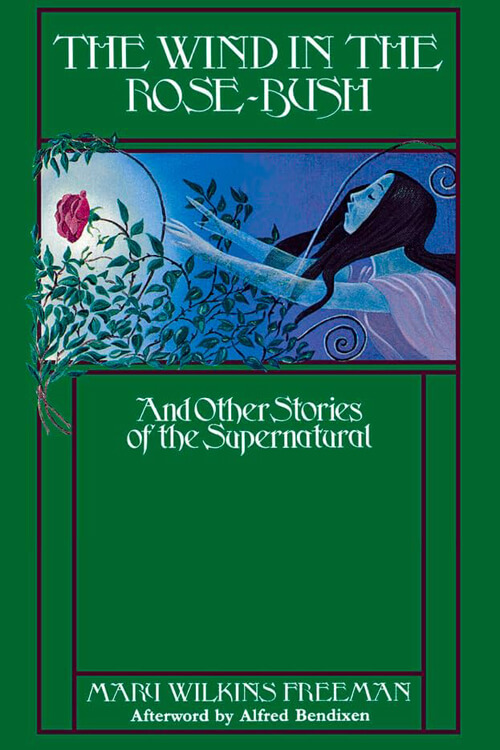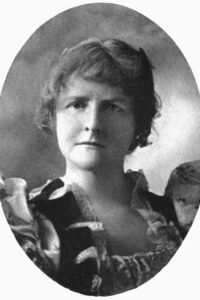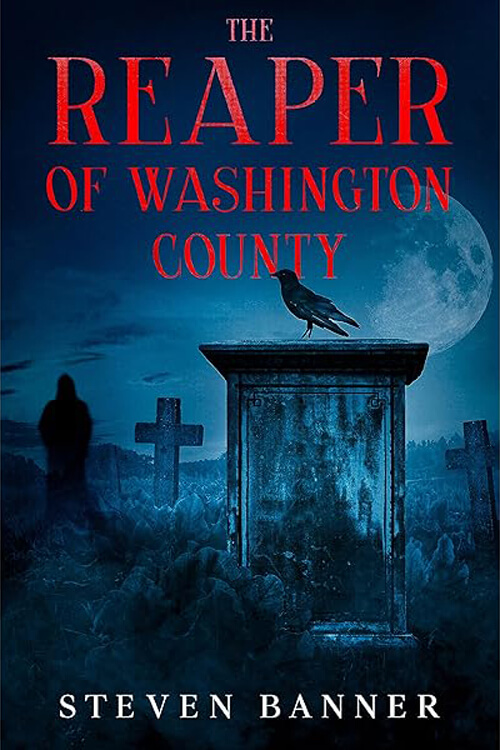
The Wind in the Rose-Bush
Ford Village has no railroad station. It is on the other side of the river from Porter’s Falls and accessible only by the Ford, giving it its name and a ferry line.
The ferry boat waited for Rebecca Flint to get off the train with her bag and lunch basket. When she and her small trunk were safely embarked, she sat stiff, straight, and calm in the ferry boat as it shot swiftly and smoothly across the stream. A horse was attached to a light country wagon on board, and he pawed the deck uneasily. His owner stood near, with a wary eye upon him, although he was chewing, with as dully reflective an expression as a cow. Beside Rebecca sat a woman about her age, who kept looking at her with curiosity; her husband, short and stout and saturnine, stood near her. Rebecca paid no attention to either of them. She was tall, spare, and pale, the type of a spinster, yet with rudimentary lines and expressions of matronhood. She unconsciously held her shawl, rolled up in a canvas bag, on her left hip as if it had been a child. She wore a settled frown of dissent at life, but it was the frown of a mother who regarded life as a forward child rather than an overwhelming fate.
The other woman continued staring at her. She was mildly stupid, except for an overdeveloped curiosity that made her, at times, sharp beyond belief. Her eyes glittered, and red spots appeared on her flaccid cheeks. She kept opening her mouth to speak, making little abortive motions. Finally, she could endure it no longer; she nudged Rebecca boldly.
“A pleasant day,” said she.
Rebecca looked at her and nodded coldly.
“Yes, very,” she asserted.
“Have you come far?”
“I have come from Michigan.”
“Oh!” said the woman, in awe. It’s a long way,” she remarked.
“Yes, it is,” replied Rebecca conclusively.
Still, the other woman was not daunted; there was something that she was determined to know, possibly roused thereto by a vague sense of contradiction with the other’s appearance. “It’s a long way to come and leave a family,” she remarked with painful slyness.
“I ain’t got any family to leave,” returned Rebecca shortly.
Read or download Book
Mary E. Wilkins
Mary Eleanor Wilkins Freeman (October 31, 1852 – March 13, 1930) was an American author.
Biography
Freeman was born in Randolph, Massachusetts, on October 31, 1852, to Eleanor Lothrop and Warren Edward Wilkins, who originally baptized her “Mary Ella”. Freeman’s parents were orthodox Congregationalists, bestowing a very strict childhood. Religious constraints play a vital role in some of her works.
In 1867, the family moved to Brattleboro, Vermont, where Freeman graduated from the local high school before attending Mount Holyoke College (then Mount Holyoke Female Seminary) in South Hadley, Massachusetts, for one year, from 1870 to 1871. She later finished her education at Glenwood Seminary in West Brattleboro. When the family’s dry goods business in Vermont failed in 1873, the family returned to Randolph, Massachusetts. Freeman’s mother died three years later, and she changed her middle name to “Eleanor” in her memory.
Freeman’s father died suddenly in 1883, leaving her without any immediate family and an estate worth only $973. Wilkins returned to her hometown of Randolph. She moved in with a friend, Mary J. Wales, and began writing as her only source of income.
During a visit to Metuchen, New Jersey, in 1892, she met Dr Charles Manning Freeman, a non-practising medical doctor seven years younger than she. After years of courtship and delays, the two were married on January 1, 1902. Immediately after, she firmly established her name as “Mary E. Wilkins Freeman”, which she asked Harper to use in her work. The couple built a home in Metuchen, where Freeman became a local celebrity for her writing despite having occasionally published satirical fictional representations of her neighbours.[ Her husband suffered from alcoholism and an addiction to sleeping powders. He also had a reputation for driving fast horses and womanizing. He was committed to the New Jersey State Hospital for the Insane in Trenton, and the two legally separated a year later. After dying in 1923, he left most of his wealth to his chauffeur and only one dollar to his former wife.
In April 1926, Freeman became the first recipient of the William Dean Howells Medal for Distinction in Fiction from the American Academy of Arts and Letters.
Freeman suffered a heart attack and died in Metuchen on March 15, 1930, aged 77. She was laid to rest in Hillside Cemetery in Scotch Plains, New Jersey.
Adolescence
As an adolescent, Freeman was increasingly caught between the need for her mother’s love and her instinct to avoid becoming her mother and subsiding into her mother’s form of passivity. Despite continuous pressure from her mother to participate in domestic chores, no discipline could pull Mary away from her reading to the reality of hated kitchen work. According to Edward Foster’s biography of Freeman, “Disliking her household duties, she avoided them, nor could disciplinary tactics move her.” It is clear that growing tension between Mary and her mother centred on her resistance to undertaking the tasks expected of a “good girl.”
As the years passed, the contrast between Mary and her sister, Anna, became apparent. While her sister Anna willingly undertook domestic work and increasingly met her parents’ expectations, Mary quietly began to reject them. She would resist her mother’s world of domesticity throughout her entire life. Her story, “The Revolt of Mother”, is especially significant in this context, for the story seems to have been written as a tribute to her mother’s work, a form of work she had never valued in her mother’s lifetime.






